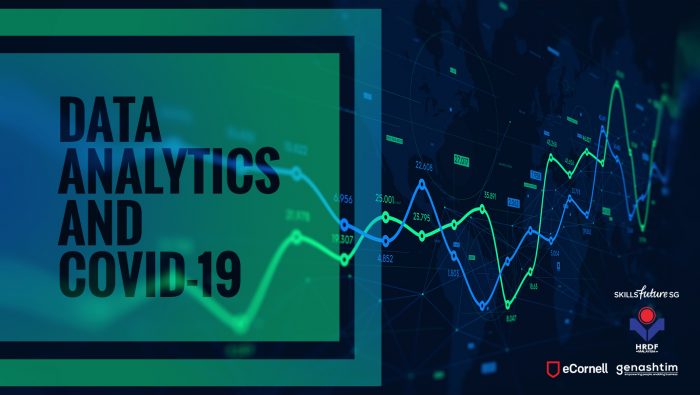Data analytics is relevant for all times and covers extensive usage. A few of the many areas in which it is applied include banking and finance, research and development, commercial logistics, education, and health care. A cursory glance at this list quickly informs our thinking that all these areas are now under serious attack from COVID-19. On this scale of contagion, data analytics will provide deep insights into a situation hitherto unknown and help researchers to draw accurate conclusions and make pertinent decisions.
According to an article on Science Daily, a new database has been inaugurated by researchers from the Centre for Genomic Regulation to progress the COVID-19 research mission. The goal is to study the manner in which distinct forms of the virus grow, mutate, and make proteins. This effort is around the clock with a colossal amount of widely publicized disparate data that is being integrated and analyzed to arrive at a universally comparable standard so that researchers can correctly identify the virus’s strengths and weaknesses more speedily.
To accomplish their aim, scientists must sequence the RNA (ribonucleic acid) of COVID-19. This process supplies the researchers with criticalintelligenceon the proteins the virus produces toenter into human cells andreproduce. Data sequencing in real time is made possible through the use of nanopore sequencing technologies which have transformed genomics research as well as the monitoring of disease outbreak.
The alternative to is traditional sequencing tools which is slow in yielding results. Nanopore sequencing gives immediate access to the DNA and RNA sequence information of living cells. This helps scientists and clinicians act quickly against the threat of a pandemic. Nevertheless, there is a present lack of systematic guidelines for scientists and clinicians to follow for the replicable evaluation of the complex data generated by nanopore sequencing.
One of the many cutting-edge certificate programs offered by eCornell is Data Analytics 360. Find out more about the program here.
eCornell courses are approved by SkillsFuture Singapore for SkillsFuture Credit as well as by HRDF Malaysia under its SBL Scheme.

